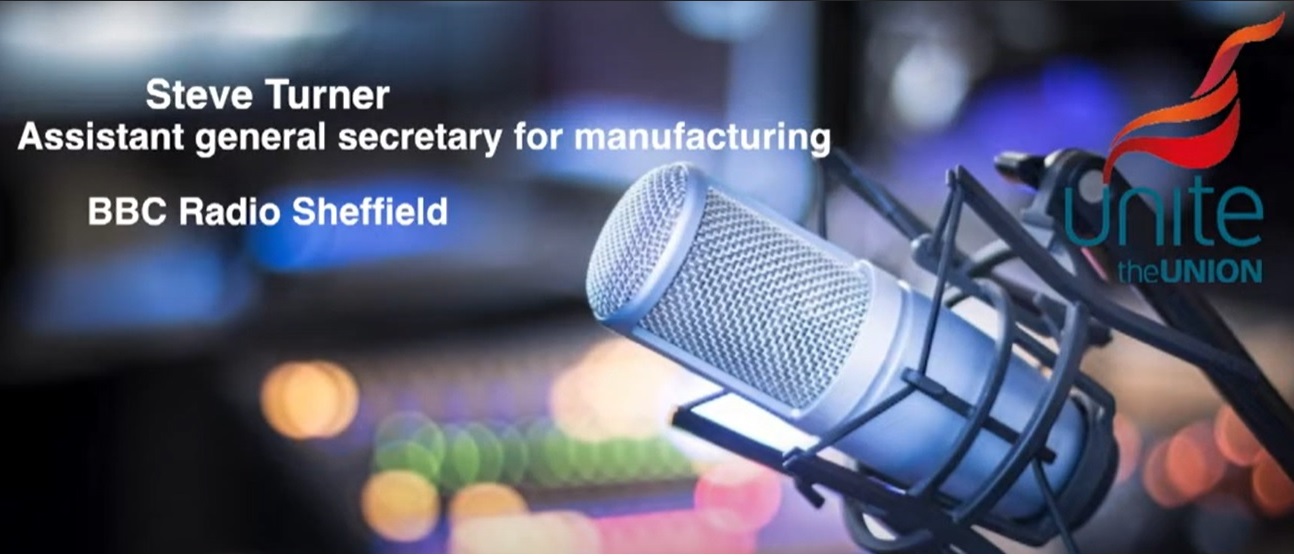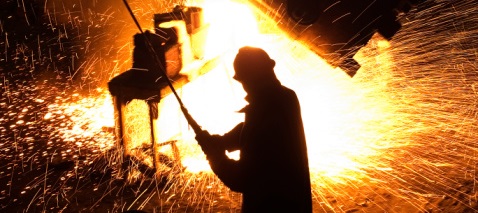Now or never
On one of the darkest days for British steel communities, when Tata Steel announced last night (March 29) its intention to sell all of its UK assets, putting up to 19,000 jobs at risk in the process, business secretary Savid Javid was a world away in Australia.
Not one government minister attended Tata’s crunch board meeting in Mumbai where board members decided the future of the UK’s largest steelworks in Port Talbot, which employs 4,000 people.
Tata Steel’s decision to sell the Port Talbot steelworks sent shockwaves throughout the Welsh steel community and across the UK, after the company’s board rejected a rescue plan that would help turn the loss-making site into a profitable one in two years’ time.
The government has endlessly dragged its feet since the steel crisis began more than a year ago, as it refused to take action that was well within its reach – in the process the steelworks in Redcar, along with thousands of jobs, was sacrificed at the altar of government carelessness.
Now, the stakes are even higher – what the government does next will be the make-or-break moment for the entire steel industry in the UK.
Finding a new buyer urgently for the ailing steelworks in Port Talbot, which is now losing money to the tune of ÂŁ1m a day, will be all put impossible without urgent government intervention.
Unite has called on the government to re-nationalise steel now.
“This is the time for the government to say categorically, without hesitation, that these assets will be taken into safe-keeping by the nation because without them our economy will not flourish,” said Unite general secretary Len McCluskey. “We are already seeing jobs going in the supply chain because of the uncertainty over Tata’s future – our fear is this will snowball if insecurity is allowed to swirl around our steel sector.”
Unite is not the only voice calling for urgent government intervention either – industry groups, the business community, economists as well as Labour have all argued that it’s â€now or never’ for British steel.
The British Chambers of Commerce (BCC) argued that the government cannot allow such a vital industry to fail.
“The loss of steelmaking would leave the UK vulnerable to global shocks, with dangerous consequences across the economy,” BCC acting director general Dr Adam Marshall noted.
“The mistakes made in the nuclear industry decades ago must not be repeated in the steel industry today,” he added. “There is a clear case for further government action to protect British steelmaking capacity, as it underpins so much of British manufacturing and construction. Our global competitors would not hesitate on an issue like this.”
Recall plea
As news hit that Tata Steel would be selling its UK business including the steelworks in Port Talbot, the Labour Party has issued a clarion call for an urgent recall of Parliament.
“MPs must have the chance now to debate the future of steel and hold ministers to account for their failure to intervene,” said Labour leader Jeremy Corbyn in a letter to prime minister David Cameron today (March 30).
“Steelworkers and their families will be desperately worried about the uncertainty,” he added. “The government is in disarray over what action to take. Ministers must act now to protect the steel industry, which is at the heart of manufacturing in Britain and vital to its future.
“It is essential that the government intervenes to maintain steel production in Port Talbot, both for the workforce and the wider economy, if necessary by taking a public stake in the industry.”
Amid calls for urgent government action, business minister Anna Soubry said, “We are, and have and continue to look at all options and I do mean all options.”
This has ostensibly included replicating a model that Scotland just recently employed to save two steel sites from closure in Lanarkshire.
Last week, the Scottish government facilitated the sale of the Clydebridge and Dalzell plants from Tata Steel to metals group Liberty House by buying the plants itself and then immediately selling to Liberty.
This â€back-to-back’ deal helped avoid the lengthy due diligence process that must take place between two companies during a sale.
Len McCluskey welcomed this move and urged the UK government to go above and beyond to save Port Talbot and other steelworks suffering under the steel crisis – a crisis which has been driven by an influx of cheap, unfairly priced Chinese imports in the face of global overcapacity.
“The unity of voices – from business to government – to say that temporary nationalisation is the way forward must not be ignored,” McCluskey said. “This helped save the Scottish plants. It has ensured that the Ilva plant in Italy survived – it must be deployed for the rest of the Tata operation.”
Government spokespeople have today shied away from explicitly using the term â€nationalisation’, and experts have said that the political will for such a move may be lacking.
Business minister Soubry has already disavowed the notion that the government would aim to â€own’ any part of the steel industry and noted that such moves may run afoul of EU state-aid rules.
McCluskey argued that taking a temporary government stake in steel in order to find a buyer was one important and perfectly legal step among a number of other measures that the government has so far failed to pursue.
â€Act now’
“In addition, the government must act now where the Budget stood silent,” he said. “We need energy costs reduced. Tariffs on cheap imports must rise to the level where they do make an impact – the UK government could do this today.”
Labour MP Stephen Kinnock, whose Aberavon constituency includes the Port Talbot plant, also hit out at the government’s failure to act.
Kinnock, who attended the Tata board meeting in Mumbai, reported that Tata itself had expressed frustration that the UK government had not acted to help avoid the business decision that it now had no other choice but to take.
The MP condemned the government for blocking measures that would enable the EU to significantly hike tariffs on cheap Chinese steel imports.
“We are rolling out the red carpet for Beijing,” he said, pointing to the fact that the UK government is intent on securing market economic status for China, despite its steel industry being 80 per cent state-owned.
“They are in hock to China,” he said. “Our commercial policy, our approach to trade and manufacturing, and our overall industrial strategy, is being dictated by Beijing.”
McCluskey noted that Unite was dedicated to working with the government to save the steel industry before it’s too late.
“We will work with them on all serious efforts to keep our steel sector alive,” he said.
As for the workforce itself, the mood may be grim as entire communities face economic annihilation – the think tank IPPR estimates that 40,000 jobs are at risk along the supply chain if Tata does not secure a buyer for its assets. Even more jobs could be in danger at, for example, shop and pubs, if spending in steel communities drops as unemployment climbs, the IPPR warned.
But, as Unite Port Talbot steelworks rep Mark Turner points out, all is not yet lost.
“We all remain optimistic,” he said. “Selling the plant gives us hope. They haven’t said they’re closing it. So we must see the positive in that.”
“My message to potential buyers is that you won’t get a more committed and dedicated workforce than ours,” Turner added. “Every single one of us is proud to be a British steelworker, proud of our work and of our industry. All we want is to continue to make steel and be proud.”
While hope still remains, time is running out. Join us as we demand that Parliament be recalled to debate the steel crisis now – contact your MP here.
 Like
Like Follow
Follow


